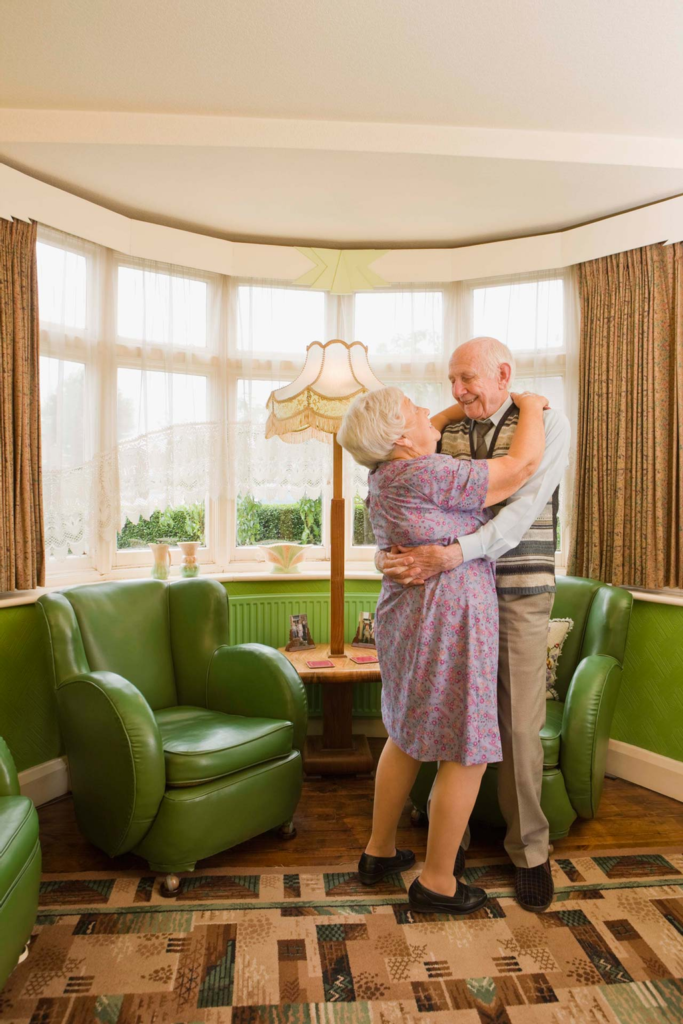Names have been changed to protect the identity of the innocent (or perhaps not so innocent …)
“Mrs. Taylor’s ready for you in room one,” my medical assistant announced as she sashayed into my office more exuberant than usual. The toothy grin on her face warned me something was up.
“Don’t you want to know why she’s here?” she teased.
“Why?” I questioned with a suspicious side eye.
“Well Mrs. Taylor is 89 years old and she says she’s only here to get her cream so she can have sex.”
Smiling at my young medical assistant, I stood and headed out of my office as she called after me, “Dr. Carrington, you better take notes!”
Well, over the years I have taken notes. So, here’s what I’ve learned about living your best (sex) life in your 20s, 30s, 40s … and even, 80s!

20s …
In their 20s, just about every young woman thinks they invented sex! I really wish I could tell them, “whatever you’re doing, your mom, grandma and great-grandma were doing (and likely better!).” And, not only are you probably not the first person to do that for him (or her), you just better hope you were the first person today! So, no matter how exclusive you think this relationship is, unless you’re ready for a baby, an STD or both … put a condom on it!
There are women in their 30s, 40s, 50s and beyond, I want to tell this to as well but the earlier you learn it the better! An STD in your 20s, can have a lasting impact on the rest of your sex life. Experiment and have fun, but do it safely!

30s …
In their 30s, many women will start to notice the first changes in their bodies — whether it be from pregnancies, weight gain or stress. These physical changes can often lead to changes in the bedroom. Weakening of the pelvic floor muscles during pregnancy for some women may cause postpartum sex to feel different. Likewise, many physical conditions associated with obesity can result in decreased libido. Therefore, in our 30s women should focus on exercise particularly weight loss for those who are overweight or obese and core exercises, such as pilates, to strengthen the pelvic floor muscles for those noting postpartum changes. It’s amazing what just 10 lbs of weight loss or stronger pelvic floor muscles can do for your sex life!

40s …
Thanks to decreasing hormone levels, in their 40s many women start to notice changes in sexual arousal, desire and physical comfort. In fact, 40% of women report some form of sexual dysfunction. For women experiencing a decrease in arousal and/or interest, there are many options available. Increasing stimulation and sensual pleasure, sex therapy and hormonal and psychotropic medications are all proven to help women with sexual dysfunction. According to patients like Mrs. Taylor, your 40s should be when things are just starting to get good!

50s …
As women enter menopause, many will notice vaginal dryness and other hormonal changes that can make sex less comfortable. The old adage, however, “if you don’t use it, you’ll lose it” is true here. Women who are more sexually active as they enter menopause experience fewer and less severe sexual symptoms of menopause. For those with vaginal dryness, over-the-counter vaginal moisturizers can be effective in helping to restore sexual pleasure (see here for other tips for surviving menopause). If, however, you find these ineffective or you’re noting other sexual symptoms associated with menopause, follow-up with your gynecologist so that you can “use it, before you lose it.”

60s …
During their 60s many couples are either in long-term relationships or just starting to become sexually active with a new partner after a period of inactivity. Either way, sex in your 60s doesn’t have to be boring. In fact, many couples in their 60s report having some of the best sex of their lives! Sexual confidence and a desire for more meaningful sex at this age leads many couples to try new things in the bedroom, such as moving sex out of the bedroom, role playing, trying new toys, new positions and watching erotica.
If you’ve experienced a period of inactivity, resuming sex may be more painful initially. If you are noting painful intercourse, be sure to talk with your gynecologist about vaginal dilators or other options to help make sex pleasurable again.

70s …
Most women in their 70s have started to experience aches and pains in some joint or another, whether it be in their knees, hips or back. Arthritis or other aches and pains associated with aging do not have to mean an end to your sex life, however. At this stage small modifications to your sexual positions can lead to even more pleasurable sex. Try placing a pillow under your back or using furniture for support so that you aren’t putting stress on painful joints. Sure, sex in your 70s will be different than sex in your 20s, but who’s to say it can’t be better?

80s …
When I entered room one that day, I found Mrs. Taylor, a soft-spoken, petite woman with perfectly coifed hair and delicate makeup sitting on the exam table – a far cry from the racy, pinup I was expecting. We talked and I prescribed the cream she had come in for, but just as she gathered her small purse and prepared to leave, I asked.
“Mrs. Taylor, I have to ask. What is your secret to having great sex into your 80s?”
She looked at me beaming from ear to ear and answered, “I love my husband.”
Aging is inevitable, but bad sex doesn’t have to be. The desire for intimacy is ageless – experiment, have fun and be safe!


Pingback: Top 5 Things Women Wish They Could Tell Men About Sex – Radiance Women's Center